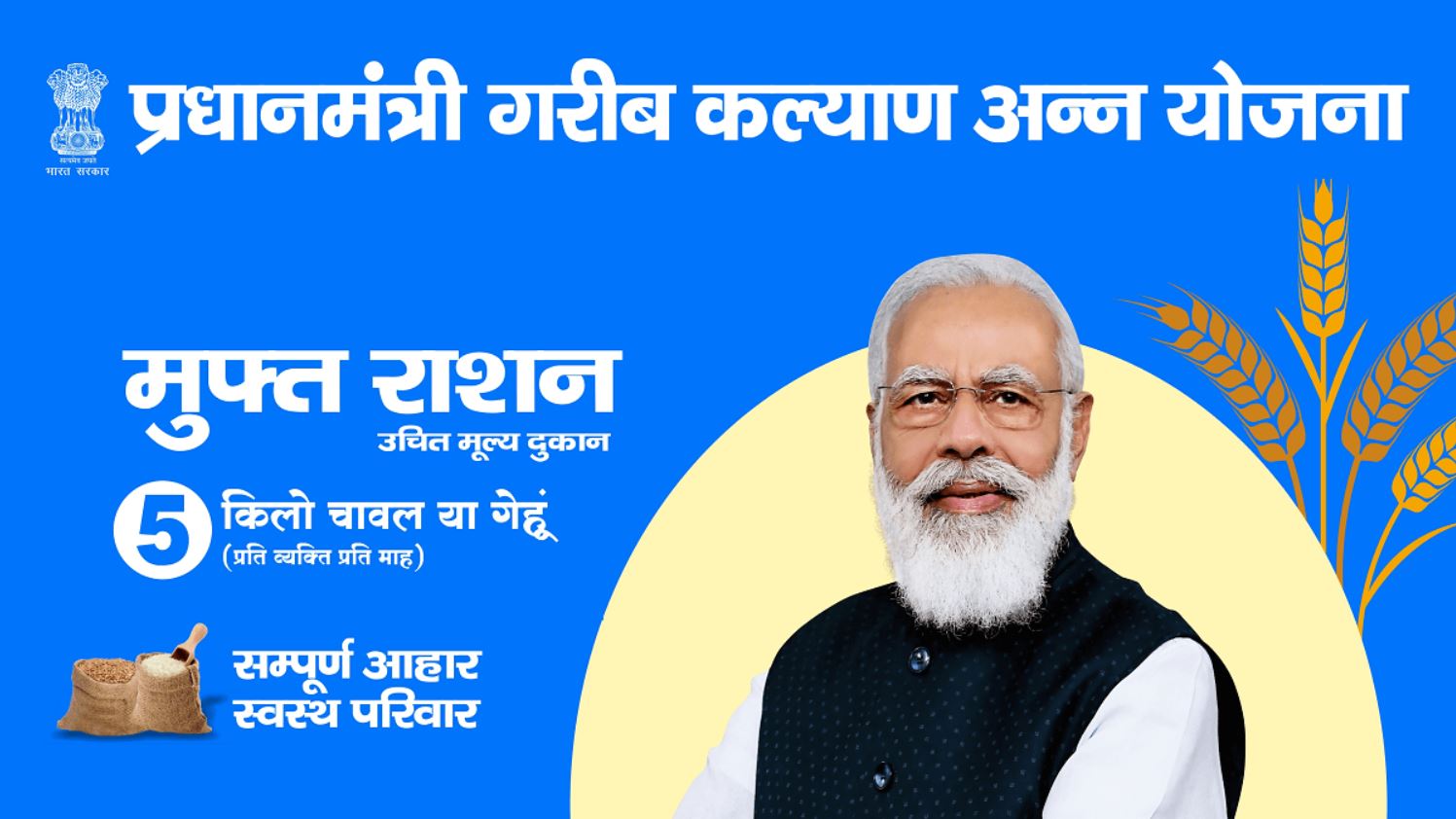Free ration schemes in India: Is it really a long-term solution or politics prevailing over the economy?

54.6% (77 crores) of India’s workforce is engaged in agricultural and allied sector activities. Still, 67% (81 crores) of Indian citizens are served free food grains. Even after this, Health Survey for India confirms 16.4% (23 crores) of India’s population is poor. What an irony for the newly crowned “5th largest economy” in the world.
By Anika Kasat

The mystery is – if only 23 crores of Indian citizens are poor then why do 81 crores of Indian citizens need free food year after year? If 77 crores of the Indian population are agriculture producers, why cannot they feed themselves? Considering this distribution is reaching the everyone who deserves, there should have been no poor or hungry citizens left in the country by now. Mathematically, the government is distributing over and above what is required.
The Union Government is spending 2 lakh crore a year for distributing free food grains. This is a massive load on our economy. We should not forget the opportunity cost. We are taking away much-needed investments in healthcare, education, infra, and spending on the development of the nation. Imagine the impact, each Indian citizen would get. Better hospitals, quality education, improved roads, and more employment opportunities. This compromise hurts to a greater extent when we still see poverty all around. The question is – “Are we justifying our resources?”
Let us delve deeper and understand the original purpose of food subsidy and how over a period it has evolved into a big economic obligation.
India had an acute shortage of food till the 1960s. Due to this supply constraint and rising population, food price inflation was on the rise. This is when Public Distribution System (PDS) and ration shops came into existence. It was predominantly meant for the poor. The idea was to sell food at subsidized prices in small quantities so that everyone gets at least something.
This was the background of the National Food Security Act of 2013, also called the Right to Food. It was passed as a constitutional guarantee. The argument was that despite more than a ton of food grains in government granaries, there was still widespread starvation and malnutrition.
Does this free food program really help? Two different use cases can indicate the downside.
Person ‘A’ gets something for free beyond what he needs. What will be his next logical step? Sell it, and why not. Thanks to inflation, market is ready to pay a good price for it? In the current context, cereal and wheat inflation has been running at above 10%, how do we rule out the possibility of re-sale of that same food grain by the beneficiaries for a profit? Such re-sale is entirely possible and is natural. Eventually, this has become a big business for opportunists and middlemen. Have we done enough to prevent it?
100 million tons of food grains out of a production of 316 million tons is distributed for free. In percentage terms, 67% of the population is getting about 32% of the food grains from the government and had to depend for their balance needs on the free market. Where will they get the balance from? They will have to compete pushing the prices further and beyond the reach of economically weaker sections of society.
To solve this problem, we are creating an even bigger problem. So how do we disentangle ourselves from this mess?
Firstly, let us focus on the supply side. Try to make agriculture more sustainable and adaptable to changing climate conditions. It is crucial to implement a new, and advanced version of the Green Revolution that incorporates biotechnology and breeding techniques to develop crops that are resistant to disease, more nutritious, diverse, and can withstand extreme weather conditions.
Secondly, we should re-evaluate and clean up the entire distribution policy and network. Considering that most of our poverty-stricken population lives in rural areas, we must be extra cautious before drafting any policy.
Government should start unloading millions of tonnes of food grains from its stocks into the private market strategically. This would dampen food prices and keep inflation in check.
We have recently overtaken the UK to become the fifth-largest economy in the world. Our target is much higher. We certainly do not intend to accelerate at the cost of people’s welfare but leakages like these are an absolute NO.



